We conduct monitoring and analysis of users’ energy related behaviour to establish patterns, motivations and constraints to inform energy efficiency strategies in all forms of housing and commercial buildings. This is a pathway to securing their thermal comfort needs, reduce consumption as well as tackling with fuel poverty.
As an example, through the EU €5.5M (THERMOSS) project we are monitoring social housing residents, particularly their heating usage and the reasons behind it.
With a combination of monitoring sensors and social surveys, we can infer energy usage patterns and their determinants, as well as understand user’s motivations and constraints.
In the Ofgem-funded £8.3m SAVE project we have used similar methods to analyse residential electricity consumption in 4,000+ households in the Solent region and tested a range of demand reduction interventions.
In addition ECCD are researching the role of solar energy systems in reducing electricity demand in residential buildings, contributing to Saudi Arabian low carbon pathway aspirations. The project will address peak demand shaving of air conditioning loads in domestic buildings and provide information to residents on energy efficiency measures.

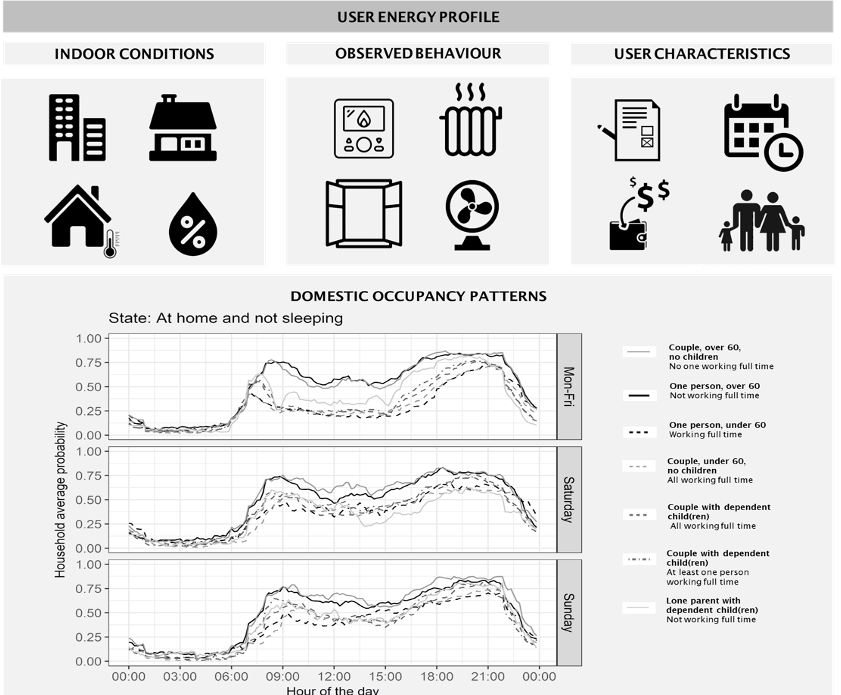
Updates:
UKRI Press Release featuring ECCD research – LATENT 2025 
LATENT project featured in a new UK Research and Innovation (UKRI) press release
ECCD exhibit at the Southampton Science and Engineering Festival (SOTSEF) 2024 2024 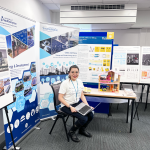
The Energy and Climate Change Division exhibited at The Science and Engineering Day held across Highfield Campus and Boldrewood Innovation Campus on Saturday 16th March 2024.
ECCD host workshop for Health Homes First application 2024 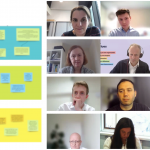
Associate Professor Stephanie Gauthier hosted an online workshop project stakeholders and partners to develop plans for the Healthy Homes First application.
Guidelight – UK Power Networks, electricity distribution 2024 
Low-income and vulnerable consumers receive grant funded LCTs through local authority retrofit schemes, but without supporting households to switch tariffs or using digital optimisation tools, retrofit schemes risk creating a socio-technical performance gap that this project will evidence and address through a range of capability-based interventions that are tailored to those in vulnerable circumstances.
Energy and Sustainability MSc student wins best paper award at the People and Buildings Conference for Masters Students 2023 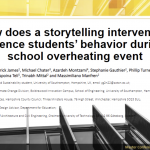
Yu Gao, an Energy and Sustainability MSc student supervised by Prof. Patrick James wins the best paper award at the 2023 People and Buildings Conference for Masters Students
Overheating Risk Assessment for UK schools 2023 
This project is a response to the UK’s overheating risk introduced by climate change. By 2070, climate projections for the UK estimate an increase in seasonal average temperatures of up to 5.1°C in summer as well as more intense and frequent extreme events such as heat waves.
ECCD host Board Members of Crédit Agricole Normandie 2023 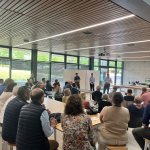
ECCD hosted a delegation of Board Members of Crédit Agricole Normandie with representatives from Southampton City Council, Equans and Exxon talking to the delegation about climate, energy and innovation.
Sustainability Implementation Group 2022 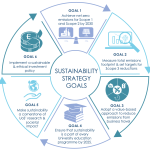
ECCD lead on the University Strategy-Sustainability, through the University Sustainability Implementation Group (SIG), setting the vision for a more sustainable University.
ECCD exhibit at The Big Sustainability Expo (Southampton) 2022 2022 
The Energy and Climate Change Division exhibited at The Big Sustainability Expo (Southampton) 2022 held at St Mary’s Stadium, Southampton on Thursday 22nd September.
LATENT – outreach and engagement 2022 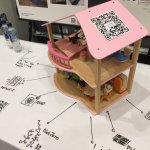
Article listing the range of outreach and engagement activites that have been undertaken as part of the LATENT project
ECCD present at Portsmouth City Council’s BIG Climate Conversation 2021 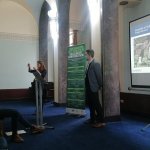
The Energy and Climate Change Division attended Portsmouth City Council’s Big Climate Conversation held at Portsmouth Guildhall on 9 and 10 November 2021.
Whose flexibility is it anyway? 2021 
Authors: Ben Anderson & Tom Rushby The importance of flexibility for a zero-emissions electricity system continues to drive considerable research and socio-technical innovation across CREDS and its linked activities. Inherent in much, although not all, of this work is the notion that we need to find ways to enable flexibility at the consumer end of the ...
SAVE project modelling visualisation 2019 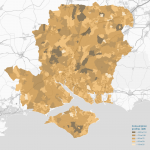
Mapped! Latest results from the SAVE spatial microsimulation model show how the level of residential electricity demand varies by time of day and by place across the Solent region.
The End of the World (Cup) 2018 
… for England. We didn’t plan the SAVE household sample recruitment and data collection period to over-lap with the 2018 World Cup but we had no end of fun when it did. We started out with some quick analysis of pick-ups (or not) of power demand during the game against Tunisia on June 18th before moving ...
Thermoss monitoring strategy 2018 
Monitoring includes (a) Heat Network performance (b) indoor conditions and (c) outdoor conditions. (a) Using ultrasonic flow meters we are able to measure flows and temperatures in the heat network to monitor delivered heat and efficiency of the system without disrupting water circulation. (b) Indoor variables monitored include temperature and relative humidity in bedrooms and lounges, radiator ...
Thermoss UK heating technology demonstration sites 2018 
The Energy and Climate Change and the Sustainable Energy Research Group at the University of Southampton are directly involved in research and development of THERMOSS in the UK. This includes the deployment of heating technology packages in the residential demonstration sites (1) and (2) located in the cities of Southampton and Portsmouth. Both sites will ...
Seamless Engaging Home Services: Making Efficiency Desirable (SENSE) 2018 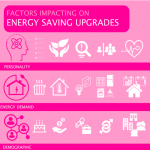
SENSE is a project looking to develop a new approach to providing energy services (insulation, energy contracts etc) to their residential customers. The aim is to be able to offer a tailored offer to a household – ideally one with whom they already have a gas and electricity contract. Customer engagement is clearly key to ...
UK household power demand and #worldcup2018 2018 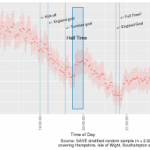
Author: Ben Anderson (b.anderson@soton.ac.uk, @dataknut) We recently posted a brief analysis of household power demand during the May 2018 Royal Wedding which showed a number of surges and dips associated with events in Windsor. In this post we switch to events in Russia – and specifically the first England game of World Cup 2018 (vs Tunisia). ...
SAVE: Data sources 2018 
The LCNF funded Solent Achieving Value from Efficiency (SAVE) project is collecting a range of data on household electricity demand. The data comprises electrical power demand, electrical energy consumption and a range of survey data on a large (n > 3,000) sample of households in the South East of England. The SAVE sample The SAVE sample is ...
Super Saturday and spikes in demand 2018 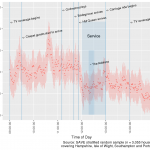
Author: Ben Anderson (b.anderson@soton.ac.uk, @dataknut) A while ago we posted a brief analysis of Christmas Day 2016 which showed that it was a most unusual Sunday. Although there was little evidence of positive ‘spikes‘ in household electricity demand due to synchronised behaviour, HM The Queen’s TV broadcast appeared to cause a distinct negative spike and there ...
SAVE: Solent Achieving Value from Efficiency 2018 
Investigators: Professor AbuBakr Bahaj, Dr Ben Anderson and Professor Patrick James. Researchers: Dr Tom Rushby, Dr Magesh Nagarajan, Dr Mikey Harper Contact: A.S.Bahaj@soton.ac.uk The Solent Achieving Value from Efficiency (SAVE) project was awarded £10 million under the Low Carbon Network (LCN) Fund and was carried out by a multidisciplinary consortium of academics, industry and consultants. The project, led ...
Liveable Cities – Case studies 2018 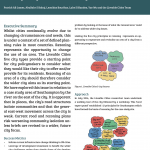
Alongside the Little Book Series, 9 Case Studies were produced from the Liveable Cities work to showcase the breadth and applicability of the Liveable Cities research to practice and everyday life.
Liveable Cities – Little Book series 2017 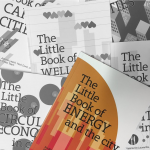
Following the roadshows and a successful closing event in the House of Lords, the Liveable Cities – Little Book series are now available online to download as PDF.
Energy Demand & Supply in New Zealand: Early Impressions 2017 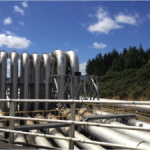
It isn’t hard to find similarities between the British Isles and New Zealand. The traditions derived from the British immigration to the islands (and the South Island in particular) emerge as a common language; as familiar sports at which, for the most part, the Kiwis give us a good thumping; a liking for real ale, ...
SPATIALEC Global Fellowship launches 2017 
SERG’s Dr Ben Anderson has just started the outgoing phase of his EU H2020 Marie Skłodowska-Curie scheme-funded SPATIALEC Global Fellowship. Based at the University of Otago’s Centre for Sustainability, Ben will initially be working on combining time use and electricity monitoring data from the New Zealand GREEN Grid project with New Zealand Census data to produce ...
SERG research core to SSEN parliamentary event 2017 
SERG’s Dr Ben Anderson presented the SAVE study design and trial period 1 preliminary analysis at Scottish and Southern Energy Network’s Using Energy Efficiency to Defer Network Reinforcement parliamentary event at the Houses of Parliament on November 20th, 2017. With an introduction from Alan Whitehead MP (Shadow Minister (Department for Business, Energy and Industrial Strategy) (Energy ...
Energy and the City RoadShow 2017 
The Sustainable Energy Research Group is hosting a roadshow on 9th November 2017. BACKGROUND ‘Liveable Cities’ is an umbrella name for a series of interlinked research projects addressing these questions, carried out by the Universities of Southampton, UCL, Lancaster and Birmingham. Liveable Cities is hosting a series of three roadshows, one in each of its case study cities: ...
IMPETUS domestic hot water demand model presented at BECC 2017 2017 
Dr Despina Manouseli presented a poster on the IMPETUS domestic hot water demand model at the annual Behavior Energy and Climate Conference in Sacramento, California in October 2017. The poster presented a novel, practices-based approach to hot water demand estimation ‘under normal conditions’ using microsimulation to forecast seasonal demand at the household level under various water/energy conservation scenarios. The models suggest that the installation of ...
Smart Energy Research Lab 2017 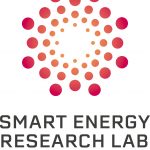
Investigators: Dr Ben Anderson, Prof Abubakr Bahaj Researchers: Dr Tom Rushby SERG is part of a team led by UCL to deliver the new GB Smart Energy Research Lab (SERL) with funding from the UK Engineering and Physical Sciences Research Council. The Smart Energy Research Lab will provide a secure, consistent and trusted channel for researchers to access high-resolution ...
SERG researchers present nine papers at SET2017, Bologna, 17-20 July 2017 2017 
SERG researchers presented on a range of fields at the 16th Sustainable Energy Technologies (SET) Conference 2017, held at the Alma Mater Studiorum at the University of Bologna. Topics presented included: Wind energy: Mikey Harper and Mostafa Mahdy Thermal comfort: Rucha Amin and Victoria Aragon Urban regeneration: Philip Turner Cities and carbon-reduction potential: Luke Blunden and Massimiliano Manfren Combined heat ...
Early SAVE results feature at project open days 2017 
SERG’s Dr Tom Rushby gave a summary of early SAVE project results at two SAVE ‘Open Days’ on the 10th & 11th of May 2017. The events, which were lead by SSEN but hosted by the University, consisted of a series of short talks and facilitated discussions intended to help inform the project’s future direction. Tom presented ...
Clean Carbon Event Poster: Solent Achieving Value from Efficiency (SAVE) 2017 
Solent Achieving Value from Efficiency (SAVE) project poster presented to the ‘Clean Carbon‘ USRG by SERG’s Dr Thomas Rushby, 10th May 2017 References list: EA Technology. Future Load Growth from presentation titled ‘SAVE Project Customer & Network Model Meeting’. 17th February 2015 Newsham, Guy R., and Brent G. Bowker. ‘The Effect of Utility Time-Varying Pricing and Load ...
Early SAVE results feature at University Clean Carbon Event 2017 
SERG’s Dr Tom Rushby gave a summary of the SAVE project to members of the University’s ‘Clean Carbon‘ USRG on the 10th May 2017. The event, which featured a keynote from Prof. Jon Gibbins, Director of the UK Carbon Capture and Storage Research Centre (UKCCSRC) on the state of CCS in the UK, consisted of ...
Author: Ben Anderson (b.anderson@soton.ac.uk, @dataknut) There is often talk in the media about the ‘spikes’ in energy demand caused by breaks in television schedules – when everyone is supposed to jump up and put the kettle on (or whatever). Although these make for good media stories, the largest overall surges are probably to do with cooking ...
New Census2022 paper published in the Computers, Environment and Urban Systems 2016 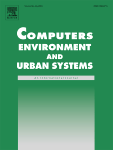
“Electricity consumption and household characteristics: Implications for census-taking in a smart metered future” briefly reviews the nature of current and future census taking in the UK before outlining the household characteristics that are to be found in the UK census and which are also known to influence electricity load profiles. The paper then uses the Irish CER ...
SPATIALEC: Marie Skłodowska-Curie EU Global Fellowship 2016 
Dr Ben Anderson of the Sustainable Energy Research Group (SERG) at the University of Southampton has been awarded a prestigious three year EU Global Fellowship under the Marie Skłodowska-Curie programme. The two year outgoing phase of the fellowship will be hosted by the University of Otago’s flagship Centre for Sustainability where Dr Anderson will be embedded in the ongoing ...
Demand modelling for infrastructure 2016 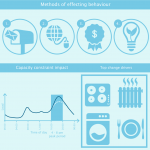
A key output from the Solent Achieving Value from Efficiency (SAVE) project mentioned on demand models for infrastructure resilience was the Network Investment Tool: a suite of models to improve the simulation of low-voltage distribution networks, thus better informing future investment strategies.
Census2022 research features at MRS seminar on the future of the UK census 2016 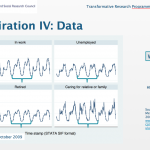
SERG’s Dr Ben Anderson recently gave a summary of the ESRC funded Census2022 project results as part of a Market Research Society symposium on “Can Big Data replace the Census? What does Big Data give us now?“. Speaking alongside representatives from CACI, Telefonica and the Office for National Statistics, Ben outlined the potential value of electricity smart ...
SERG's DEMAND research features at ADE event 2016 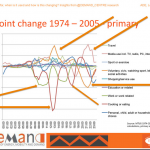
SERG’s contributions to the RCUK-EUED DEMAND centre were recently showcased at an event co-hosted by DEAMND and the Association for Decentralised Energy (ADE) on 14th January. Dr Ben Anderson gave three presentations covering: “Trends in the timing of energy using activities: what can be learnt from time use data?” – an overview of the use of time ...
SERG research features at Royal Statistical Society Conference 2015 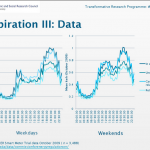
SERG’s Dr Ben Anderson gave two papers at the recent Royal Statistical Society International Conference 2015 held at the Univesity of Exeter: “What can DECC’s NEED data tell us about levels and change in domestic electricity consumption?” gave an overview of some recent analysis of DECC’s domestic energy consumption dataset drawing implications for the need to ...
#Census2022 paper on smart meter data for a smart census published 2015 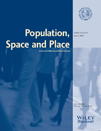
Newing, Andy, Anderson, Ben, Bahaj, A.S. and James, P.A.B. (2015) The role of digital trace data in supporting the collection of population statistics – the case for smart metered electricity consumption data. Population Space and Place, 1-13. (doi:10.1002/psp.1972). Debates over the future of the UK’s traditional decadal census have led ...
Energy Performance and Thermal Comfort in a High-Rise University Halls of Residence 2015 
This project intends to investigate the impact of occupant-related parameters on energy performance using a newly built ‘BREEAM excellent’ University Halls of residence building as a case study. More specifically, it will address the challenge of achieving energy efficiency and comfortable indoor conditions in a building which accommodates international students with potentially very different and ...
SERG ‘Customer Model Framework’ contribution to SAVE published 2015 
SERG’s first report for the LCNF funded SAVE project has been published. The report, “Report 2.1 – SAVE Customer Model Framework Specification“, lays out the applied research context for the SAVE Customer Modelling Framework (SCMF) and describes its key requirements. The report then outlines a microsimulation modelling approach than can meet these requirements and describes its conceptual foundations and method of ...
SAVE project report on 'Energy Efficiency and Behaviour Change' published 2015 
The SAVE project’s review of evidence on ‘Energy Efficiency and Behaviour Change‘ which has just been published shows that whilst the great variety of previous trial approaches and contexts often makes it difficult to compare results, common insights have emerged. These include: Customers cannot be engaged as one group – the way in which different people react to attempts to change their energy ...
RENKEI Spring School – University of Southampton Southampton, UK, 22-29 March 2015 2014 
Theme: ‘District Energy Supply within Cities’ Date: 22-29 March 2015 Venue: University of Southampton Background RENKEI is the Japanese word for “collaboration” and in this context also stands for Research and Education Network for Knowledge Economy Initiatives. RENKEI is an initiative of six Japanese Universities, six UK Universities and the British Council Japan. The role of RENKEI is to offer a common ...
Liveable Cities second round of surveys online – details for participants 2014
Please follow the links below to complete your survey(s) by Monday the 17th of November if possible. Your ID number is on the e-mail and/or letter that was sent to you recently. Many thanks for your participation. If you have any questions, or if any of your contact details have changed or are incorrect, please ...
Census2022 project: Four conference papers presented 2014
The Census2022 project recently gave a series of presentations of preliminary results at the following conferences and events: British Society for Population Studies Annual Conference: University of Winchester, 8-10 September 2014, (slides) Behave 2014 ‘Paradigm Shift: From Energy Efficiency to Energy Reduction through Social Change’, the third European conference on behaviour and energy efficiency, Saïd Business School ...
New Event: The Role of Communities in Household Energy Reduction – Who, How and Why? 2014 
This event aims to analyse the role that community initiatives can play in the reduction of personal energy demand. It will focus on the ways in which community initiatives decide which audiences to engage, how they communicate their aims and what this means for their effectiveness. When: 24 September 2014, 10.30-16.00 Venue: Discovery Centre, Winchester Reserve by: 12 September 2014 Reserve at: Booking is free ...
"The role of commercial data in #Census2022" session @ RGS/IBG 2014 2014
The following session has been accepted for the RGS Annual Conference 2014 Session Title: The role of commercial data in #Census2022 Organisers: Dr Ben Anderson and Dr Andy Newing, Sustainable Energy Research Group, University of Southampton Session Chair: Keith Dugmore, Demographic Decisions Ltd. and Demographics User Group Session Sponsor: ESRC #Census2022 Transformative Research Project Abstract: Consumer data collected by commercial ...
Census 2022 project grabs attention at MRS meeting 2013 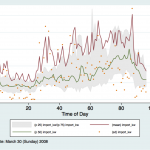
The new ESRC funded Census 2022 project has attracted attention from the Market Research Society’s Census and Geodemographic Group (CGG). Andy Newing gave an overview of the project’s aims and objectives as well as some preliminary data analysis at a meeting hosted by GFK NOP, 19th November 2013 at Ludgate House, London. Several members of ...
Liveable Cities 2013 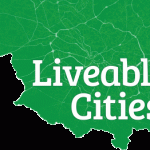
How do we address energy consumption to meet low carbon targets? How do we address infrastructure ‘lock in’ to improve the carbon performance of the urban environment? How do we engender and embed low carbon pathways and engineering solutions for demand reduction and power generation in cities? Introduction Launched in 2012, Liveable Cities is a five year £6.2m research ...
Census 2022: Transforming Small Area Socio-Economic Indicators through ‘Big Data’ 2013 
Census 2022: Transforming Small Area Socio-Economic Indicators through ‘Big Data’ is a project funded by the ESRC Transformative Research 2012/2013. Investigators: Dr Ben Anderson, Dr Patrick James & Prof. ‘Bakr Bahaj Contact: b.anderson@southampton.ac.uk The possible demise of the decennial UK Census presents social, policy and commercial researchers with both a challenge and an opportunity: The challenge is to transform ‘census-taking’ ...
DEMAND: Dynamics of Energy, Mobility and Demand 2013 
DEMAND: Dynamics of Energy, Mobility and Demand is one of 5 RCUK End User Energy Demand Research Centres and is sponsored by EPSRC/ESRC with support from partners EDF-Energy, Transport for London and the International Energy Agency. The Centre is led by the Universities of Lancaster & Leeds and besides Southampton also involves researchers from Aberdeen, Reading, Birmingham, UCL, ...
The distribution and dynamics of UK citizens’ environmental attitudes, behaviours and actions 2013 
The distribution and dynamics of UK citizens’ environmental attitudes, behaviours and actions is a project funded by the Economic and Social Research Council under the Secondary Data Analysis Initiative and runs from January 2013 to June 2014. The project uses Understanding Society, the new large scale UK longitudinal household panel to analyse the environmental attitudes, behaviours, and actions ...
The role of community-based initiatives in energy saving 2011 
This ESRC-funded 4 year year study is assessing the impact of community greening groups on a roll out program insulation upgrades in privately owned housing. The project is led by Prof. Graham Smith, School of Social Sciences, University of Westminster.
Transforming Energy Demand through Digital Innovation – Intelligent Agents for Home Energy Management 2010 
This project seeks to apply novel artificial intelligence approaches to develop intelligent agents that will enable domestic consumers to visualise, understand and manage their energy use. It is a three year EPSRC project (EP/I000143/1), which started in October 2010, within the ‘Transforming Energy Demand through Digital Innovation’ call. The project brings together expertise in artificial intelligence ...
Photovoltaics in Residential Applications 2007 
Residential grid connected PV systems are relatively simple to design with easy to predict annual yields. However, the headline economics of residential PV in the UK are at present unattractive. A typical small residential PV system (1 to 3 kWp) as shown in the top figure would cost in the year 2000 around £4,500 per ...
Deterioration of Environmental Conditions 2006 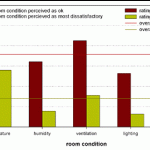
Further occupant surveys conducted by the group have shown that compromising one aspect of the indoor comfort conditions can lead to a perceived compromising of all other measures of indoor comfort. A survey conducted in June 2005 inside existing offices adjacent to the PV atrium (c in Figure 1) reveiled a significantly worse perception of indoor ...
Ventilation Behaviour in Relation to Carbon Dioxide Concentration and Air Temperature 2006 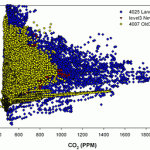
The carbon dioxide concentration levels normally observed in indoor environments range from 350 to 2,500 ppm and are typically between 500 and 1,500 ppm. Current literature suggests that a building’s carbon dioxide concentration can be seen as an indicator for both volatile organic component (VOC) concentration and general indoor air quality. However, the potential to ...
What is Good Building Performance? 2006 
The question of how to qualify and quantify good building performance is not trivial to answer. A well performing building from a carbon footprint perspective may not automatically be well performing in terms of occupant satisfaction (Figure 1). Similarly building performance may be understood quite differently by different groups of building users as ‘performance’ can be ...
Environmental Control Facilities and User Interaction 2006 
The group’s research has highlighted that at present environmental control facilities are often not correctly applied, or more usually, incorrectly used due to their complexity or unintuitive mode of operation. It has been shown that there is often lack of interaction between users and their buildings. Façade interaction studies of an office building highlighted rather low ...
Exploring the value of transactional energy consumption data 2004 
The Exploring the value of transactional energy consumption data project is part of the wider ESRC funded Administrative Data Research Centre for England (ADRC) and will enable information routinely collected by government departments and other agencies, such as tax, education, health and consumption data, to be shared with researchers.
Using Energy Metering Data to Support Census 2021: A Feasibility Study 2004 
The possible demise of the decennial UK Census presents social, policy and commercial researchers with both a challenge and an opportunity. If we are no longer to be restricted to what can be asked in a Census, what kinds of social indicators might we want or be able to produce and when?

